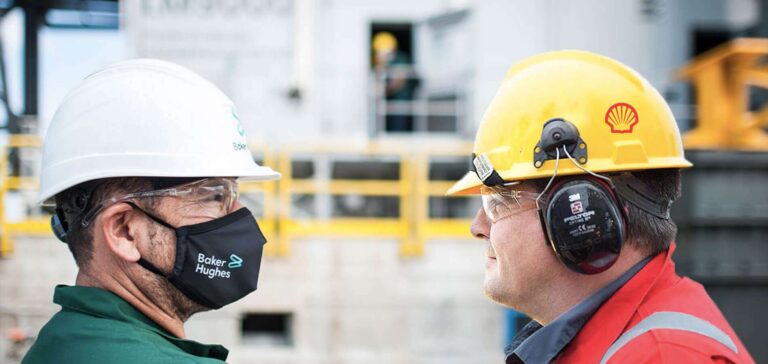Baker Hughes extends its cooperation with Shell.
Their new agreement includes a range of measures to ensure that each company supports the other in its decarbonization efforts.
Baker Hughes to deploy low-carbon technologies for Shell
Under the agreement, Shell will supply renewable energy credits to several Baker Hughes sites in the United States.
The two companies will also negotiate for sites in Europe and Singapore.
In exchange, the company is to provide Shell with low-carbon technologies for its liquefied natural gas facilities.
Lorenzo Simonelli, Chairman and CEO of Baker Hughes, stresses that the aim is to achieve carbon neutrality.
The collaboration must respond to “the urgency of the energy transition to meet the objectives of the Paris Agreement”.
Agreement for US sites, negotiations for European sites
The first step is to finalize Shell’s supply of some of Baker’s U.S. facilities.
Shell is to supply electricity and renewable energy credits for a period of two years.
In addition, negotiations are underway for a similar supply for its sites in Europe.
The aim is to supply around 100 GWh of renewable energy.
The two companies also plan to power Baker’s chemical plant in Singapore with a photovoltaic system.
24% renewable energy in Baker Hughes assets
In 2020, the share of renewable electricity in Baker’s assets was 22%.
With this agreement, this share is set to rise to 24%.
Harry Brekelmans, Shell’s Director of Projects and Technology, welcomes the “clear ambition to decarbonize” of both companies.
The aim is to bring Shell and its customers closer to the goal of net zero carbon emissions.
A fruitful collaboration
The agreement expands a long-standing cooperation.
Baker Hughes was the first supplier to participate in the Supplier Energy Transition Hub.
This platform, launched by Shell, enables energy suppliers to share their decarbonization experiences.
Baker Hughes also helped Shell develop the Open AI Energy Initiative.
The two companies collaborated on VitalyX, a digital monitoring system to optimize shipping performance.






















